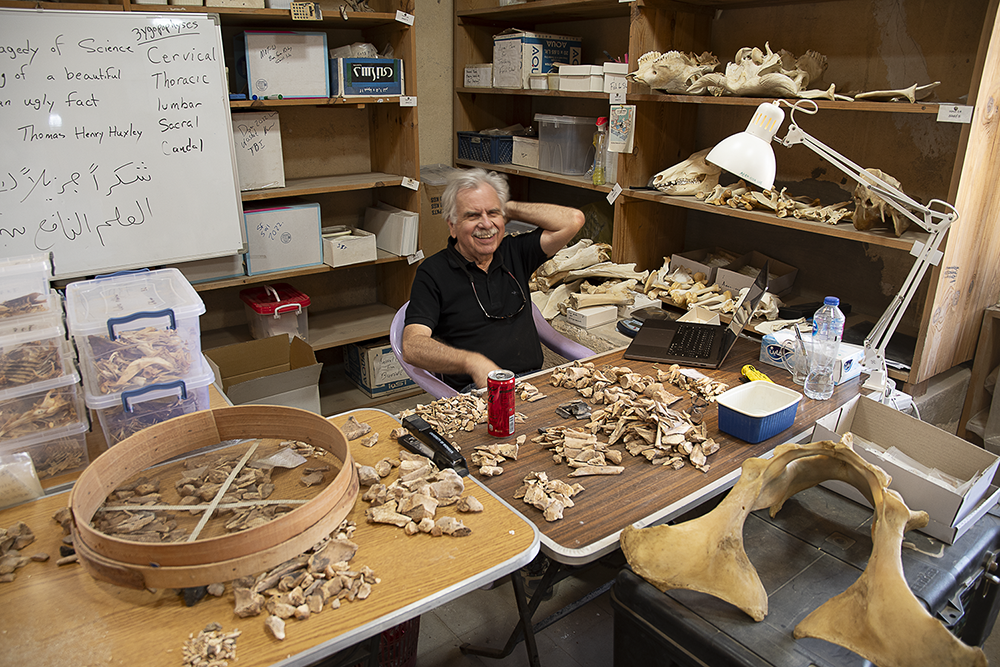The entire AERA team mourns the loss of Dr. Richard Redding – our friend, mentor, and colleague – who passed away on May 22, 2023. We extend our deepest condolences to Richard’s loved ones and to everyone whose life he touched.
Richard started working with us at the “Lost City of the Pyramids” in 1991 and quickly became a valued team member, field school instructor, AERA board member, and our Chief Research Officer. He was an archaeologist who analyzed animal bone, but that doesn’t begin to encompass the depth and breadth of his research. Richard worked at sites across the Middle East, Africa, Asia, and the Americas, allowing him to put his results into the wider context of societies and economies of ancient cultures.
Over his thirty-two years of work at Giza, he amassed big data—literally millions of identifications of animal bone— that revealed striking patterns of status and diet in this city of pyramid builders. He left what may be the world’s largest corpus of archaeological faunal data compressed into the briefest of archeological periods (the fifty or so years of pharaohs Khafre and Menkaure). Richard also left an invaluable reference collection that we’ll make good use of by continuing his research and allowing other projects to access.
Richard was always a favorite teacher in our field schools for young Egyptian archaeologists. In addition to the “how,” he also taught the “why” of studying animal bone and inspired his students to always think critically. He embodied our field school motto: We are not looking for things, we are looking for information.”

Richard wrote many articles about his work with AERA, covering topics from the joy of bone smashing to finding enlightenment in a bowl of shorbet kawara (cow trotter soup). However, his most profound legacy may be the generosity and support he always extended to his colleagues and students. As one of his students wrote, “it is not often that one finds a teacher who always finds the time for listening.”
There is now a cadre of Egyptian zooarchaeologists he helped train and a special program of zooarchaeology at the Ministry of Tourism and Antiquities (MoTA) Training Center in Saqqara headed by his former student, Mohamed Hussein Ahmed. We’d like to share this excerpt from an article Mohamed and another student wrote in 2018 about their experience studying with Richard.
“The 2018 AERA-ARCE Field School training was a dream come true. It is important that people know that becoming an animal bone specialist in Egypt is not an easy thing. To even find such training in a university in Egypt is difficult, if not impossible. Both of us had an urgent need for this specialist training right now, as we are both working on our theses, and animal bone is a key component of our topics.”
“During our research, we would send emails to Dr. Redding asking for copies of articles or books, advice, opinions, or other help that we needed in our work, but it was not enough. It was hard to read the articles and understand them because they were full of difficult Latin terms and scientific abbreviations, and we needed help just to understand the specialist language. We told Dr. Redding we would be eager to have in-depth training, and he worked to make it possible during this year’s excavation season.”
Read the full article about their studies with Richard, Learning Animal Bone.
